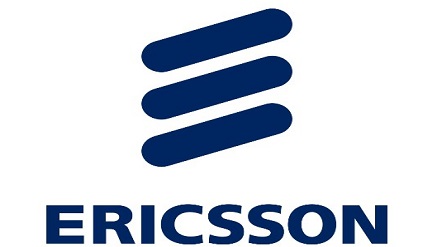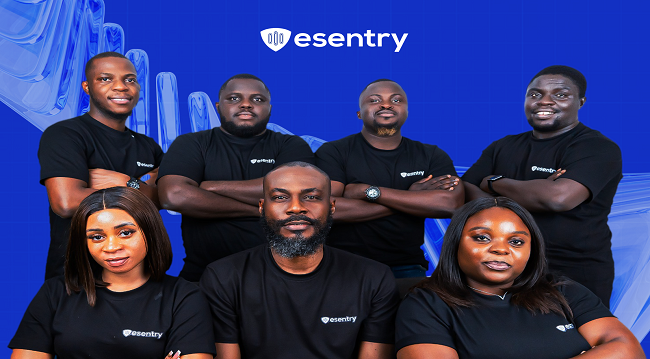E-Business
Ericsson SCR Report: ICT Can Accelerate Sustainable Development Goals

Ericsson has published its 23rd annual Sustainability and Corporate Responsibility Report, which details the company’s performance in 2015 in three areas: responsible business; energy, environment and climate change; and communication for all.
The report also highlights how Information and Communications Technology (ICT) can enable all 17 of the United Nations Sustainable Development Goals (SDGs) and even has the potential to accelerate their achievement.
Hans Vestberg, president and CEO, Ericsson, said “The SDGs lay out a clear path to a more sustainable world, and ICT is a powerful lever to make that happen. We intend to build on our momentum from 2015 so everyone can benefit from the opportunities afforded by the Networked Society.”
Responsible Business Highlights
Conducting business with integrity and transparency is at the heart of Ericsson’s commitment to sustainability and corporate responsibility.
The report shows that 99 percent of active Ericsson employees have acknowledged the company’s Code of Business Ethics. In 2015, the Ericsson Compliance Line – which enables secure reporting of suspected violations – was reinforced to support industry anti-corruption best practices.
Demonstrating its commitment to respecting human rights, Ericsson reported according to the UN Guiding Principles for Business and Human Rights framework for the second year in a row, and continues to be the only ICT company to do so.
Energy, Environment And Climate Change Highlights
According to Ericsson research, ICT solutions can help reduce greenhouse gas (GHG) emissions by up to 15 percent by 2030, more than the current carbon footprint of the EU and US combined.
In 2015, Ericsson met the target to offset twice the amount of CO2 from its own carbon footprint with solutions such as smart grids and intelligent transport.
For customers, hardware platforms like the Ericsson Radio System, new software and rural coverage solutions are all designed to help customers optimize energy performance.
In 2015, Ericsson exceeded its goal to reduce CO2e emissions per employee by 30 percent – two years ahead of schedule. This amounted to a 42 percent reduction compared with the 2011 baseline.
Communication For All
By the end of 2015, an estimated 20 million people had been directly impacted by Ericsson’s Technology for Good™ initiatives.
Connect To Learn, a global education initiative by the Earth Institute of Columbia University, Millennium Promise and Ericsson, has now been launched in 22 countries, where it is benefiting over 76,000 students. Nine of these countries are in sub-Saharan Africa – Senegal, Burkina Faso, Ghana, Uganda, Kenya, Rwanda, Tanzania, Malawi, Cape Verde.
Mobile financial services can be a game changer for advancing financial and social inclusion.
In 2015, Ericsson supported ASBANC, Peru’s National Bank Association, in an initiative to provide next-generation mobile financial services to 2.1 million Peruvians – about 7 percent of the total population – within five years.
Ericsson is doing a pan-African rollout in several countries with operator MTN, including Uganda, Rwanda, Nigeria, and Swaziland.
Work is ongoing with operator Millicom’s Tigo platform in Senegal. In 2015, Ericsson Mobile Financial Services was also launched in Ghana, Cameroon, Benin and the Ivory Coast.
Managed Rural Coverage is a new commercially viable business model that makes it possible to provide mobile coverage to areas most in need of it, where people have to survive on less than two dollars a day.
Through this solution, Ericsson enables operators provide mobile coverage for a set period according to service level agreements and defined key performance indicators. In 2015, we joined mobile operator MTN to deploy Managed Rural Coverage to parts of central and northern Benin where there was none previously.
The employee volunteer program Ericsson Response marked its 15th anniversary during the year. Ericsson Response has so far supported 40 relief efforts in 30 countries, and was deployed in locations including Iraq, Nepal, Sierra Leone, South Sudan and Vanuatu in 2015.
Fredrik Jejdling, head of Region, Ericsson Sub-Saharan Africa, said, “The impact of our sustainable business practices and corporate responsibility initiatives in this region is bearing fruit and we remain inspired to work with our stakeholders to create a positive impact in society. With fully leveraged connectivity, we connect the unconnected, improve livelihood, and help cities become more sustainable, creating value for the continent as a whole.
Elaine Weidman-Grunewald, Vice President, Sustainability and Corporate Responsibility, Ericsson, also said, “By embedding sustainability and corporate responsibility into our business, we have a strong platform for progress and positive impacts. We will continue to work in public-private partnership and advocate Technology for Good to drive change for the better.”
—
E-Business
Kaspersky Discovers New Phishing Campaign Exploiting Google Tasks Notifications to Steal Corporate Credentials

Kaspersky has uncovered a new phishing scheme that abuses legitimate Google Tasks notifications to trick corporate users into revealing corporate login credentials.

By leveraging Google’s trusted @google.com email domain and notification system, attackers bypass traditional email security filters and exploit users’ trust in familiar services.
In this campaign, victims receive an authentic-looking notification from Google Tasks with the subject line “You have a new task.” The message creates the illusion that the recipient’s company has adopted Google’s task management tool, pressuring them to act quickly. The notification often includes elements of urgency, such as a high-priority flag and a tight deadline, to prompt the victim’s immediate response.
Upon clicking the embedded link, users are directed to a fraudulent form disguised as an “employee verification” page, where they are asked to enter their corporate credentials under the pretense of confirming their status. These stolen credentials can then be used for unauthorised access to company systems, data theft, or further attacks.
“Google’s vast ecosystem of services gets exploited by scammers. The scheme with Google Tasks is part of a broader trend observed before and continuing into 2026, where cybercriminals misuse legitimate platforms to distribute scams and phishing.
Notifications originating from legitimate domains naturally evade many spam and phishing filters, while the social engineering aspect – making it seem like an internal company process – lowers the victim’s guard,” comments Roman Dedenok, Anti-Spam Expert at Kaspersky.
E-Business
esentry 2025 Report Shows Healthcare, Financial Services and Telecoms as Staging Grounds for Increased Cyberattacks in Africa

Cyber adversaries targeting African organisations are increasingly shifting away from opportunistic attacks toward deliberate, sector-specific campaigns aimed at the continent’s most critical digital infrastructures, according to the esentry 2025 Annual Report released by esentry, Lagos-based Africa’s leading indigenous Managed Security Service Provider (MSSP).

The report identifies healthcare, financial services, and telecommunications as the primary staging grounds for high-velocity cyberattacks, reflecting a growing focus on sectors that underpin economic stability, public welfare, and digital connectivity across Africa.
The findings are drawn from one of the largest cybersecurity datasets analysed in the region. Over the course of 2025, esentry processed more than 31 billion security events, generating 3.5 million alerts and successfully blocking over 15,000 malicious attempts. This monitoring scale shows that, while traditional financial institutions remain a core target, the threat landscape has expanded to include digital lending platforms, healthcare systems that store sensitive personal data, and telecom operators responsible for national and regional connectivity.
Within the healthcare sector, the report highlights ransomware as the most acute risk, with attackers frequently exploiting exposed Remote Desktop Protocol (RDP) services to compromise patient data and disrupt essential medical operations. In financial services, organisations are facing a surge in credential abuse, insider-related threats, and info-stealer malware designed to enable fraud and unauthorised access. Telecommunications providers are increasingly targeted by highly tailored phishing campaigns and attacks on exposed web services, which aim to harvest credentials and compromise customer data.
Commenting on the findings, Gbolabo Awelewa, Chief Business Officer at esentry, said the nature of cyber threats across Africa has evolved significantly. “The threats we are seeing today are deliberate, informed, and carefully tailored to local enterprises. Attackers are exploiting trusted access and moving quietly within networks, which makes early detection critical. Our coordinated cybersecurity model, spanning Defence, Intelligence, Offence, and Security Engineering, allows us to combine scale, speed, and deep contextual insight to detect and neutralise threats before they escalate,” Awelewa said.
A defining trend identified in the report is the shift from overt system exploitation to the abuse of legitimate access. By leveraging compromised credentials and ‘living-off-the-land’ techniques, attackers can blend into routine enterprise operations and significantly delay detection. This approach has compressed the attack lifecycle, enabling adversaries to move from initial access to full operational impact in fewer than 15 days.
To counter this acceleration, the report emphasises the importance of early detection and automated response. esentry says it currently contains low-complexity incidents in under 90 seconds, using a combination of structured threat hunting and centralised telemetry to anticipate and absorb attacker pressure rather than reacting after damage has occurred.
As African organisations continue to digitise, the esentry 2025 Annual Report positions itself as a critical reference point for understanding the continent’s evolving cyber threat environment. The report concludes that protecting Africa’s digital trust will require a shift away from fragmented security tools toward disciplined, coordinated defence frameworks, what esentry describes as a unified Phalanx formation.
E-Business
AfDB, UNDP Launch $10Bn AI Initiative for Africa

The African Development Bank Group (AfDB) and the United Nations Development Programme (UNDP) have launched an ambitious $10 billion project to support the adoption of Artificial Intelligence (AI) across the continent.

The 10 Billion Initiative intends to accelerate ethical AI adoption and inclusive digital economic growth in Africa.
The initiative follows the Nairobi AI Forum, which took place earlier this month in Kenya and brought together governments, private sector leaders, development partners, and tech innovators to define pathways for impactful AI adoption.
According to the organisations, the strategy is a co-designed collaboration between the Bank Group, UNDP, and commercial partners that aims to raise up to $10 billion by 2035.
The resources will be used to create up to 40 million new jobs across the continent by 2035, through targeted investments that provide the groundwork for AI and accelerate widespread adoption in everything from entrepreneurship and regional data infrastructure to policy frameworks and skill development.
Nicholas Williams, AfDB Group ICT operations division manager, commented: “As a leading multilateral development institution, the bank is leveraging its comparative advantage to ensure Africa is not left behind in the AI era.
“The AI 10 Billion Initiative paves the way for expanded partnerships and sustained investments that will accelerate AI entrepreneurship, strengthen data and infrastructure ecosystems, and support inclusive growth across the continent.”

 General News2 days ago
General News2 days agoMore 14m Farmers to Benefit from AfDB-backed Initiative

 Telecom2 days ago
Telecom2 days agoMTN Nigeria Posts Record N1.70 Trillion Pre‑Tax Profit, Declares N20 Dividend for 2025

 Telecom2 days ago
Telecom2 days agoDimension Data Nigeria Secures ₦20Billion Funding to Strengthen Digital Infrastructure

 News2 days ago
News2 days agoGalaxy Backbone Confirms Over 150,000 Active Official Government Email Accounts, Clarifies Status of GOVMAIL

 Telecom2 days ago
Telecom2 days agoAlerzo Liquidates Delivery Fleet as N4.38bn Moniepoint Loan Row Deepens

 General News2 days ago
General News2 days agoNewmark Webinar Explores How AI Could Transform Healthcare in Africa

 General News10 hours ago
General News10 hours agoSERAP Asks FCCPC to Investigate Google, Meta, Others over Alleged Rights Abuses

 E-Financial10 hours ago
E-Financial10 hours agoIran-Israel-US Conflict and CBN’s FX Gains: A Stress Test for Nigeria’s Monetary Stability













